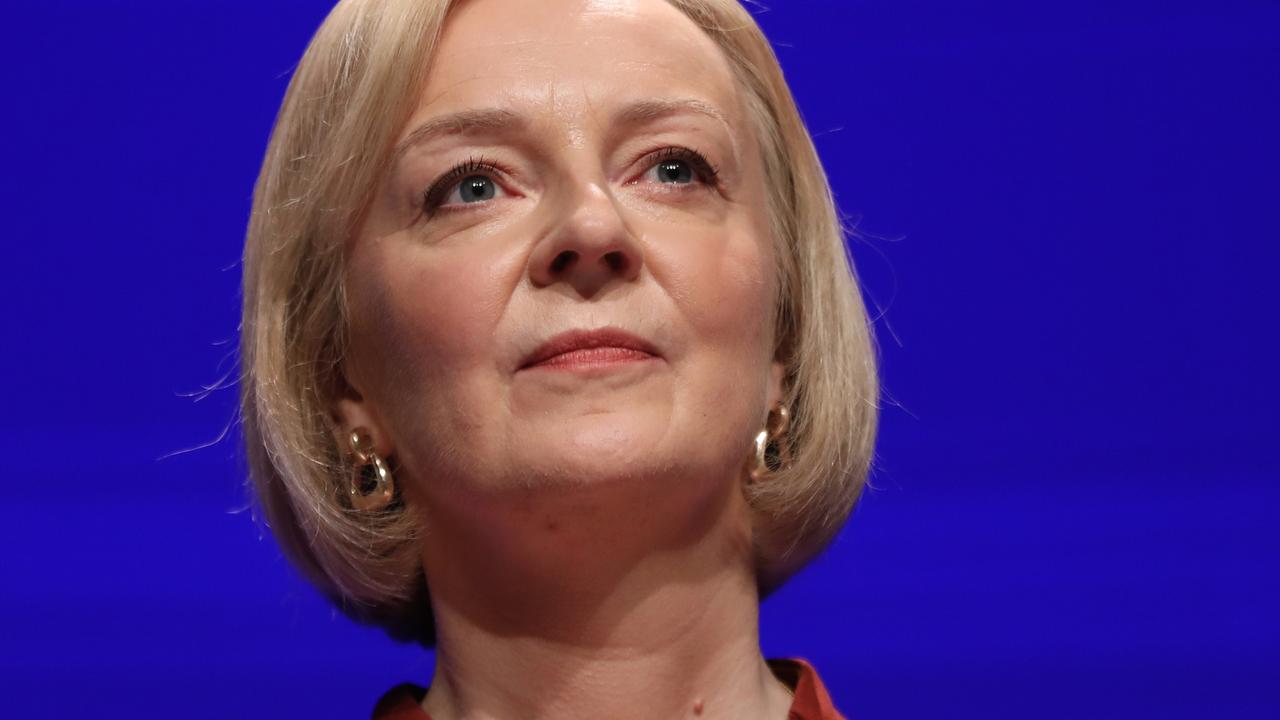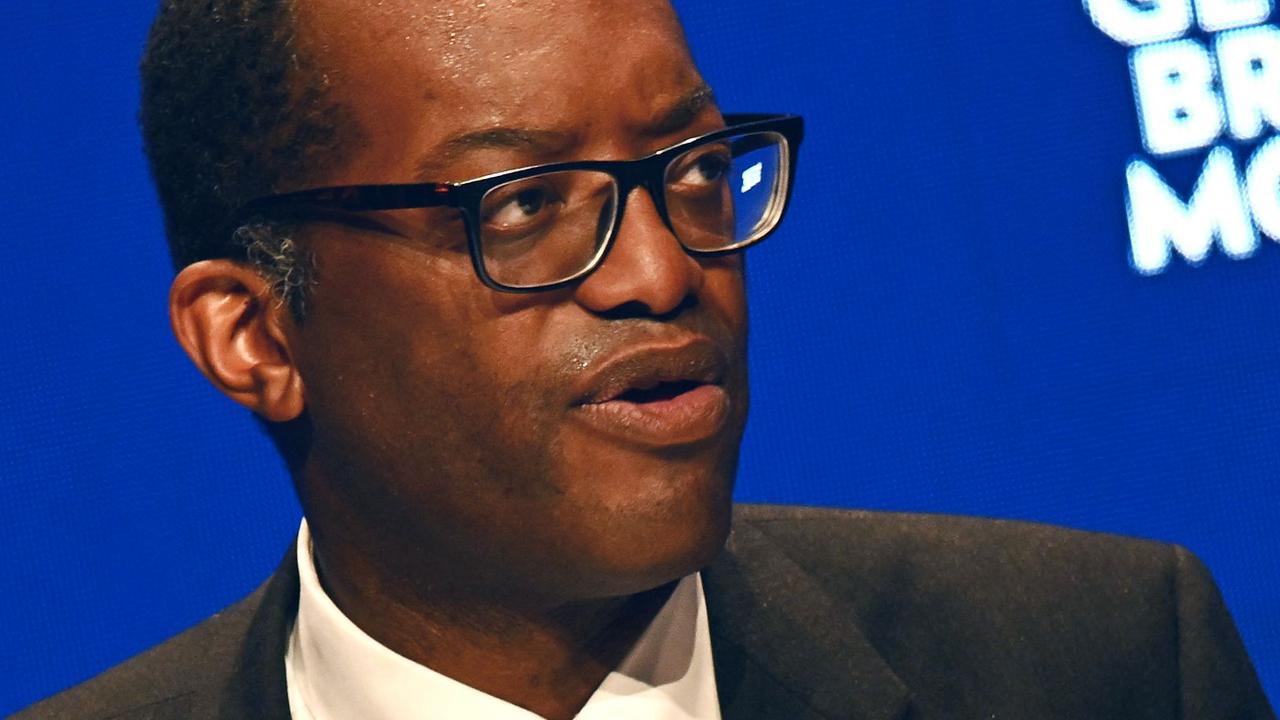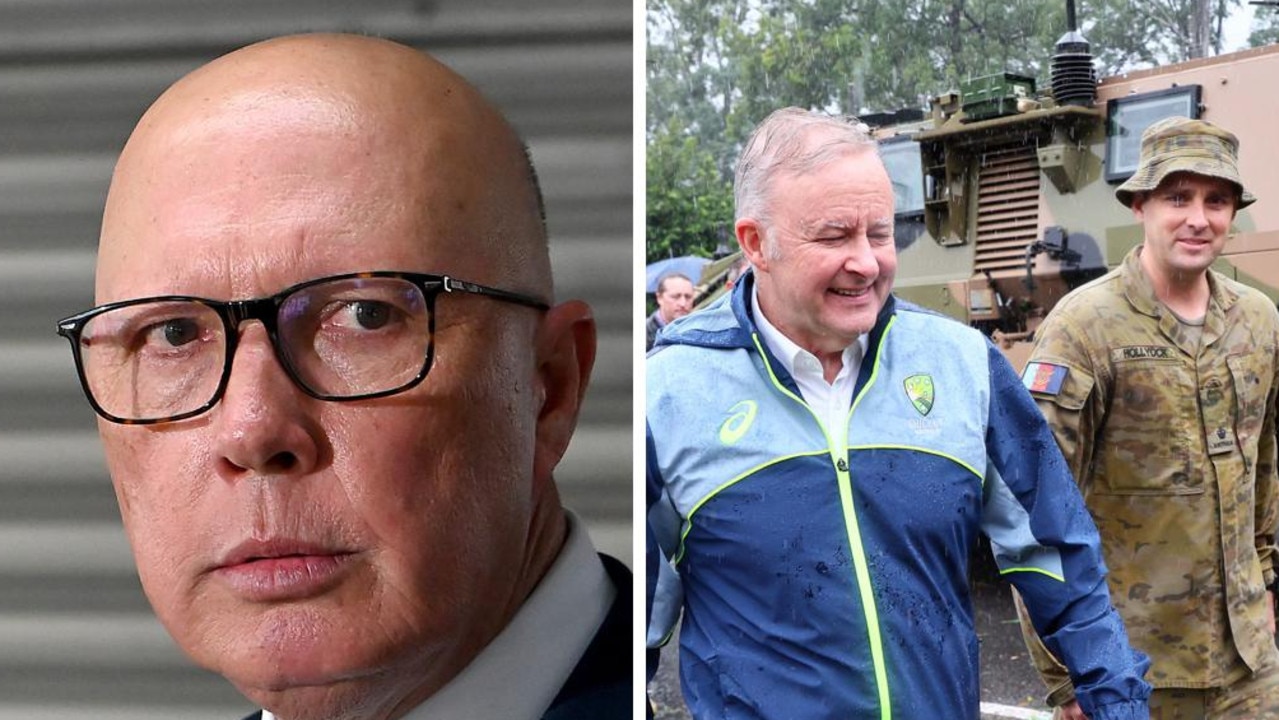Kwasi Kwarteng sacked as UK Chancellor, Liz Truss struggles to survive as Prime Minister
The UK has descended into even deeper political turmoil, with the new PM sacking her most senior cabinet member after just six weeks in the job.
The United Kingdom has descended into even deeper political turmoil, with the new Prime Minister Liz Truss sacking her Chancellor of the Exchequer, Kwasi Kwarteng, after just six weeks in the job.
Jeremy Hunt, a former foreign secretary, will replace him.
Ms Truss and Mr Kwarteng, who was the equivalent of Australia’s federal treasurer, had been dealing with panic in the financial markets since releasing a “mini-budget” in mid-September, which included a $75 billion suite of tax cuts to be funded by billions of pounds in public borrowing throughout 2023.
The mini-budget was followed by a dramatic plunge in the value of the British pound, which has stabilised at about $US1.15. Britain’s cost of borrowing in the international markets also spiked, rising above the rates of even debt-ridden nations like Italy and Greece.
In recent days, Ms Truss’s office had been considering a dramatic U-turn on some of the mini-budget’s measures, including her opposition to raising Britain’s corporate tax rate, which was a signature policy of hers during the leadership contest against Rishi Sunak.

On Friday morning, local time, Mr Kwarteng confirmed he had been sacked. In his resignation letter to the Prime Minister, the outgoing Chancellor did not back down from the controversial economic policies he’d spent much of his short tenure defending.
“You have asked me to stand aside as your Chancellor. I have accepted,” Mr Kwarteng wrote.
“When you asked me to serve as your Chancellor, I did so in full knowledge that the situation we faced was incredibly difficult, with rising global interest rates and energy prices. However, your vision of optimism, growth and change was right.
“As I have said many times in the past weeks, following the status quo was simply not an option. For too long this country has been dogged by low growth rates and high taxation – that must still change if this country is to succeed.
“The economic environment has changed rapidly since we set out the (mini-budget) on September 23. In response, together with the Bank of England and excellent officials at Treasury, we have responded to those events, and I commend my officials.
“It is important now as we move forward to emphasise your government’s commitment to fiscal discipline. The medium term fiscal plan is crucial to this end, and I look forward to supporting you and my successor to achieve that from the backbenches.
“We have been colleagues and friends for many years. In that time, I have seen your dedication and determination. I believe your vision is the right one. It has been an honour to serve as your first Chancellor.”

In a letter of her own, Ms Truss called Mr Kwarteng a “longstanding friend and colleague” and said she was “deeply sorry” to lose him from the government.
“We share the same vision for our country and the same firm conviction to go for growth,” the Prime Minister wrote.
“You have been Chancellor in extraordinarily challenging times in the face of severe global headwinds.
“You have set in train an ambitious set of supply side reforms that this government will proudly take forward.
“I deeply respect the decision you have taken today. You have put the national interest first. I know you will continue to support the mission that we share to deliver a low tax, high wage, high growth economy that can transform the prosperity of our country for generations to come.
“Thank you for your service to this country and your huge friendship and support. I have no doubt you will continue to make a major contribution to public life in the years ahead.”
Mr Kwarteng was seen leaving 11 Downing Street at about 1pm, local time. Next door, inside Number 10, Ms Truss and her staff were preparing for a speech later in the day.
Speaking as cameras followed Mr Kwarteng’s car, Sky News UK correspondent Sam Coates described the situation as a “humiliation” for him.
“His reputation, frankly, is going to be in tatters. He stewarded the British economy from a relatively benign situation to the brink of catastrophe,” said Coates.
“Now he has paid the political price. Liz Truss has sacked him.
“The scale of the challenge that she faces now is enormous.”

The Prime Minister held a very brief press conference shortly after lunchtime in Britain - it lasted just eight minutes, including the time it took to read her written statement, and she took only four questions. Ms Truss confirmed her reversal on the corporate tax rate, but said she was “absolutely determined” to deliver on her promises.
“I want to be honest, this is difficult,” Ms Truss said.
“But we will get through this storm and we will deliver the strong and sustained growth that can transform the propserity of our country for generations to come.”
She said she was “incredibly sorry” to see Mr Kwarteng go, though she offered little explanation for the move, merely implying it was necessary for economic “stability”.
“The mission remains the same. We do need to raise our country’s economic growth levels. We do need to deliver for people across the country,” said the Prime Minister.
“But ultimately, we also need to make sure that we have economic stability, and I have to act in the national interest.
“We recognise, because of current market issues, we have to deliver the mission in a different way. That is why we are absolutely committed to achieving that stability at what is a very difficult time, globally.”
Sky News UK’s political editor Beth Rigby, who was at the press conference, said journalists in the room were “genuinely shocked” that Ms Truss only took four questions, given the huge significance of the announcements.
“What she did in there I don’t think reassured anyone,” Rigby said, before reading a text message from a Conservative MP.
“Even for Liz Truss, that was shockingly bad,” the MP fumed.
“She is in deep trouble,” Rigby concluded.




